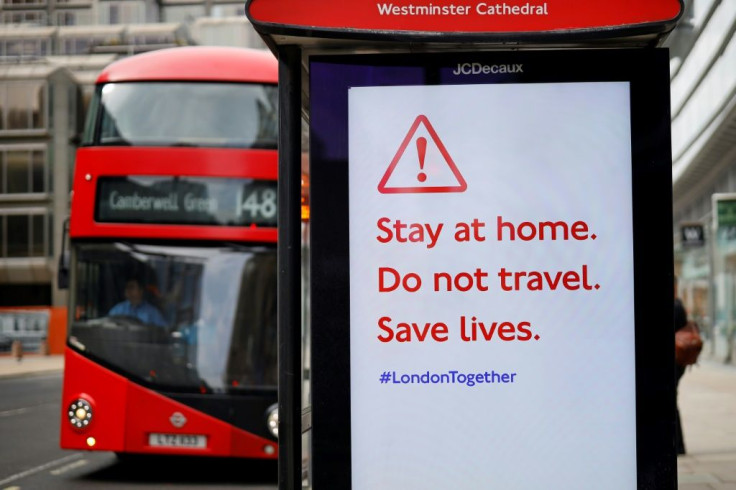Is The British Economy In Serious Trouble? UK Could See Biggest Decline In Europe Amid Coronavirus Pandemic

The British economy shrank by 20.4% in April, according to figures compiled by the Office of National Statistics. It was the biggest monthly drop on record for the United Kingdom, as the country grappled with the impact of the coronavirus pandemic.
Prime Minister Boris Johnson has said he is confident the British economy would “bounce back” from the virus.
“We’re going to work slowly to get the economy back on its feet,” Johnson told broadcasters on Friday. “Slowly confidence will return and you will see a bounce back for the U.K.”
A report from the Organization for Economic Cooperation and Development (OECD) this week projected that the British economy could be hit the hardest of major European nations. If there is just one wave of the virus, the OECD forecasts a 11.5% drop in annual GDP for the U.K., compared to 11.4% in France, 11.1% in Spain, 11.3% in Italy and 6.6% in Germany. The British economy is dependent on financial services, hospitality and tourism -- industries heavily impacted by lockdown orders.
The Chancellor of the Exchequer Rishi Sunak, the U.K.’s top economic and finance executive, promoted the government’s response to the crisis.
"In common with many other economies around the world, we're seeing the significant impact of coronavirus on our country and our economy,” said Rishi Sunak, a member of the Conservative Party. "The unprecedented action we've taken to provide lifelines that help people and businesses through the economic disruption will ensure our economic recovery is as strong and as swift as possible."
It's deeply concerning to see that the UK's economic downturn due to Covid19 has been worse than comparable nations. I'll continue to push government to fix problems with our economic response so we can better weather this crisis. pic.twitter.com/AXxHakQ1se
— Anneliese Dodds 💙 (@AnnelieseDodds) June 11, 2020
The top opposition lawmaker in charge of economic policy called the OECD report “deeply worrying.”
"Today's evidence from the OECD is deeply worrying, showing the U.K. was particularly exposed when the coronavirus crisis hit,” said Anneliese Dodds, the shadow chancellor of the exchequer. "The government's failure to get on top of the health crisis, delay going into lockdown and chaotic mismanagement of the exit from lockdown are making the economic impact of this crisis worse."
The British government imposed a lockdown in mid-March to control the virus, banning “non-essential” travel and contact outside of an individual’s home. By late April, Johnson said the country passed the peak of the virus. On Monday, people will be required to wear a mask on all public transport in England and "non-essential" shops will reopen.
As of Sunday at 1:35 p.m. ET, there are 297,342 cases of the coronavirus in the U.K. and a death toll of 41,783.
© Copyright IBTimes 2025. All rights reserved.





















